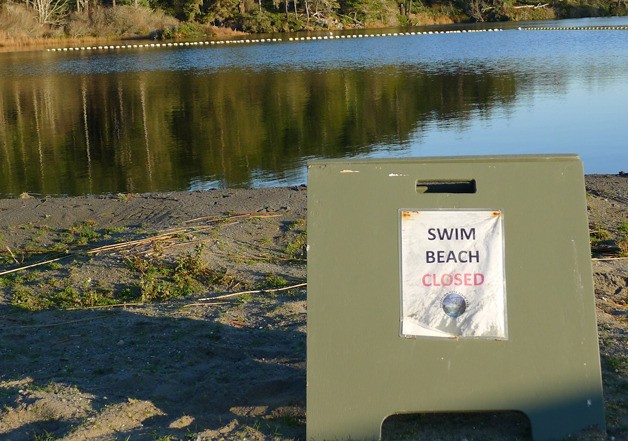Months after a popular swimming hole in Deception Pass State Park was shut down due to contamination, park officials are trying out creative solutions to the problem.
Officials at the island’s most popular park had to close the Cranberry Lake swimming area in July 2012 because of persistently high levels of E. coli bacteria in the water. Those levels were caused by copious amounts of droppings from the 60 to 80 geese that often congregate in the area.
Jack Hartt, parek manager, highlighted several things staff will do to discourage the honkers from congregating near the popular swimming hole.
He said park staff members will be trying out some scare techniques, such as placing coyote cutouts throughout the troubled area.
In addition, they’ll apply grape seed extract in the area around the lake. The extract tastes foul to the fowl, but Hartt noted that the extract is expensive and it has to be re-applied after it rains.
“It’s a multi-pronged approach,” Hartt said. “We’re doing everything we can to get those levels down.”
After county health officials closed the swimming area, which is located on the west side of Cranberry Lake, attendance at the state park plummeted. He said the park lost tens of thousands of dollars of revenue because of the closure.
Cranberry Lake isn’t the only area where staff is having problems with goose droppings. Canada geese have been congregating near the Cornet Bay Retreat Center, which was recently renovated and includes lodging for 180 people.
Jill Wood, environmental health director for Island County, said county staff continue to monitor water condition at Cranberry Lake. The most recent reading, which was taken in November, found that E. coli levels were nearly seven times the state standard. A county health worker filled a 100 milliliter bottle with water from the swim area. The lab found the bottle contained 770 E. coli colonies, while the state standard is 126.
Contact with fecal contaminated bacteria can result in gastroenteritis, skin rashes, upper respiratory infections and other illnesses. The risk is greatest for young children, the elderly or anyone with a compromised immune system.
Wood said staff will continue to monitor water condition at three areas around Cranberry Lake, the dock, boat launch and the beach on the western side.
A smaller goose problem on Honeymoon Lake near Freeland has been addressed twice. Once, a state hunter killed the geese. Another hunter was scheduled for this year, but anonymous goose lovers snatched the five birds before they could be killed.



